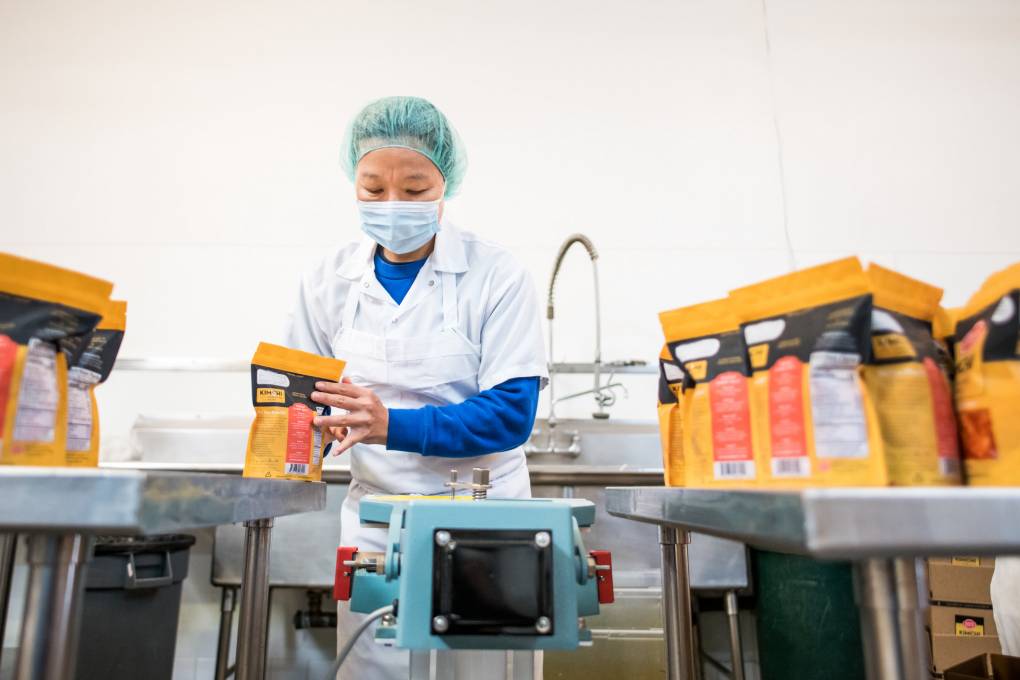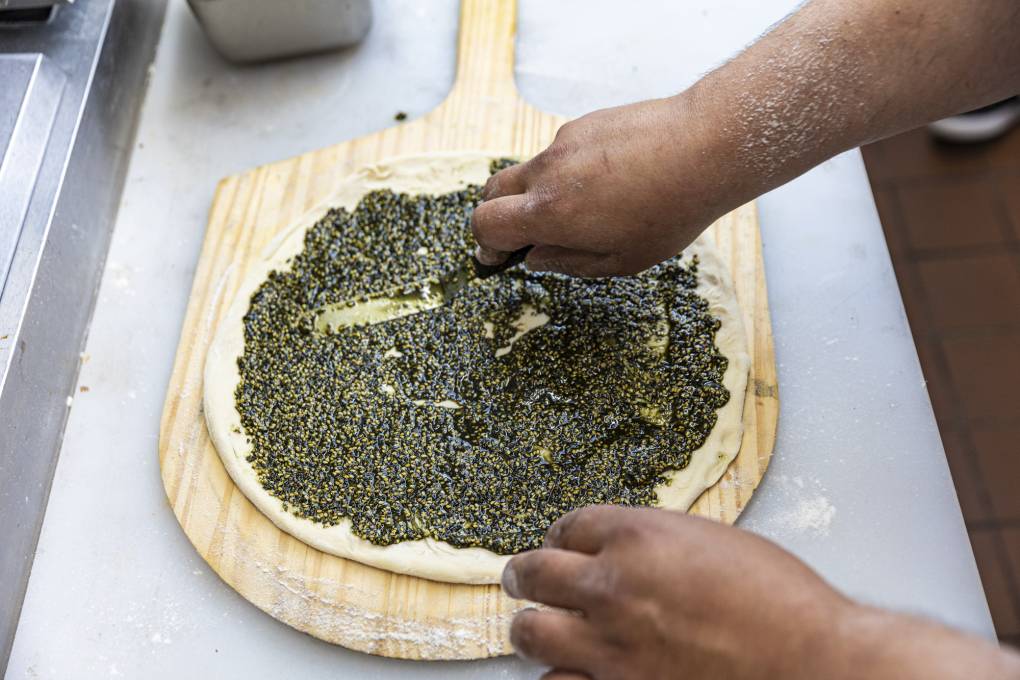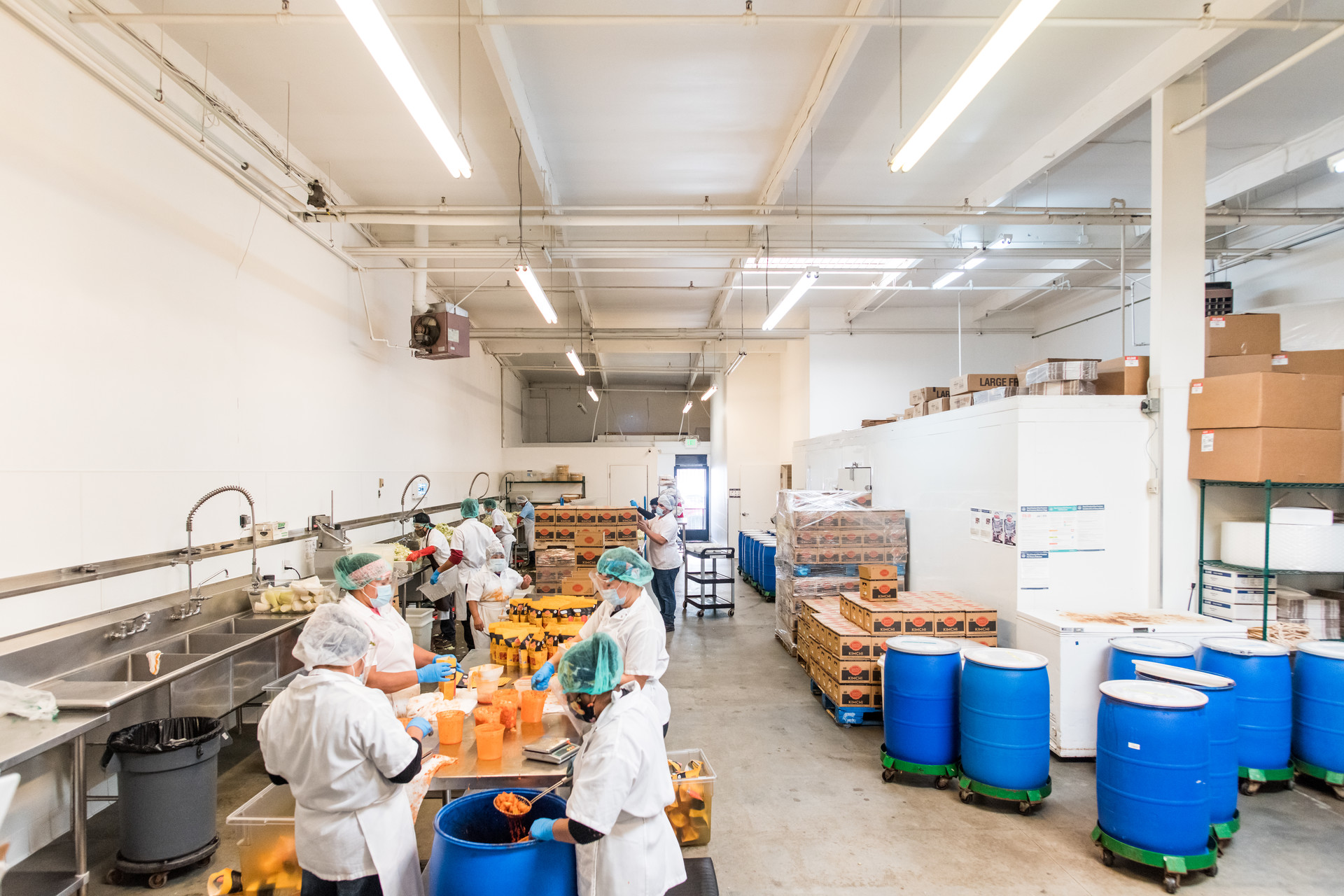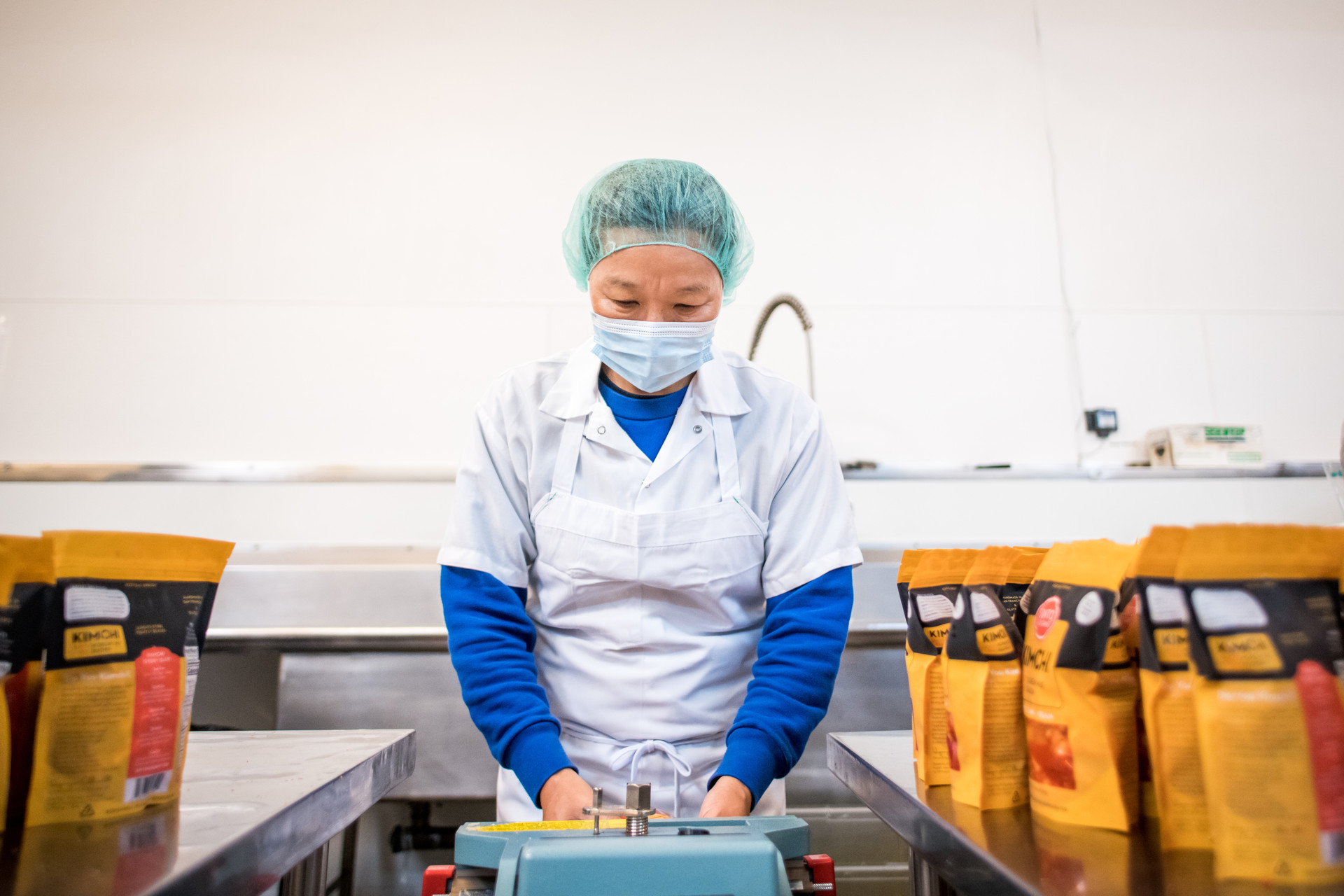Hyunjoo Albrecht runs a kimchi and hot sauce manufacturing company called Sinto Gourmet. Over the last decade, she has had an unusually intimate vantage on “food tech” companies. That’s because she has been a landlord to many of the Silicon Valley delivery apps and other venture-backed businesses who were trying to “disrupt the food space.”
This is the story of how Albrecht had to partner with these companies to build her own food business in the Bay Area, why she vowed to stop working with them and how in the pandemic she ended up partnering with a company that had burned her in the past.
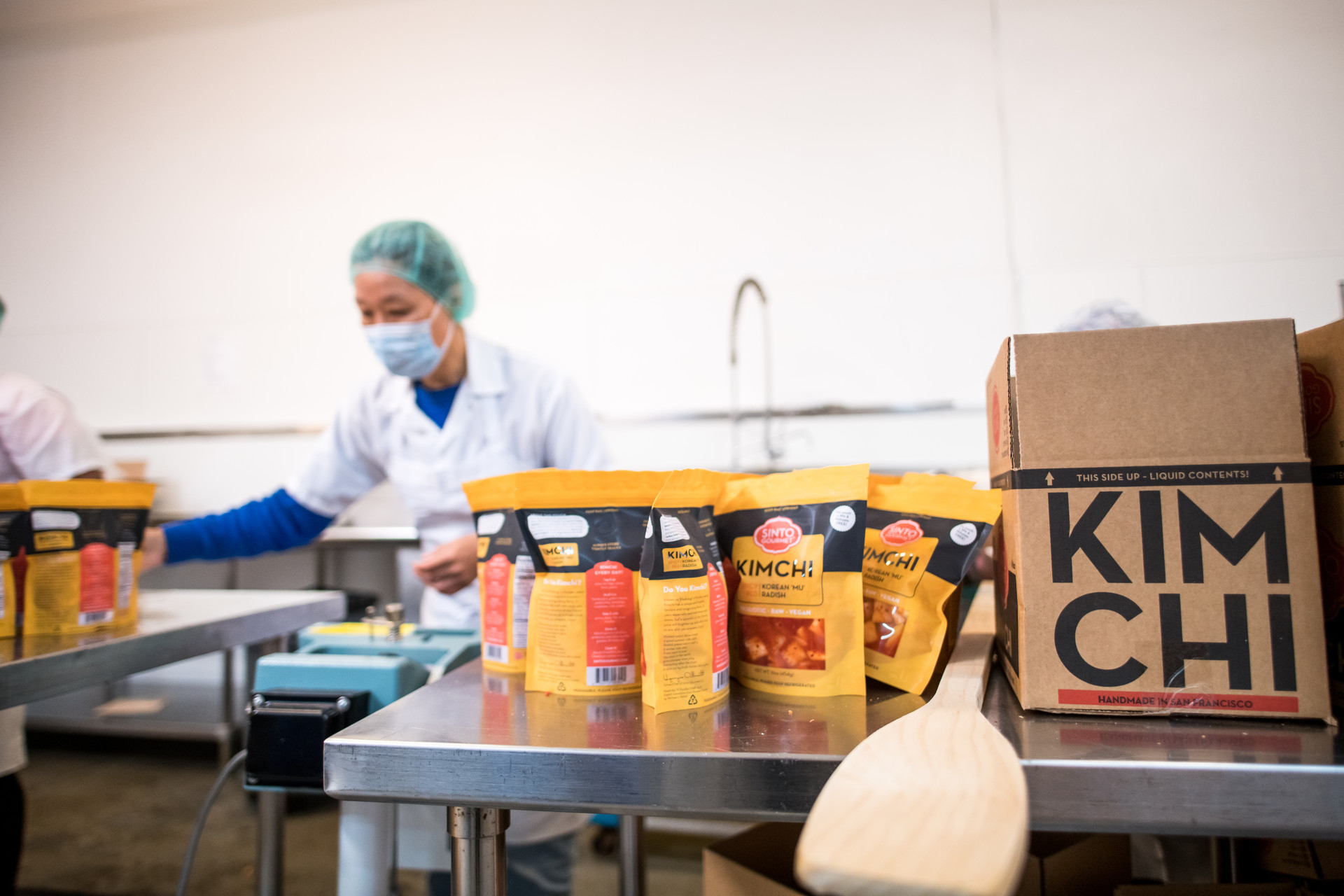
The Road to a Sustainable Business
Unlike food tech companies that spring to life with venture capital, it took Albrecht years to build her business. She immigrated from South Korea in 2003 and started Sinto Gourmet with some recipes from her North Korean grandmother. Then she started slowly expanding her fermented offerings.
She sells tubs of spicy napa cabbage kimchi. There is a mild version and a crunchy option. In 2014, she started selling a mixture of fermented California root vegetables: red beets, daikon, turnips, rutabaga and carrots. Alongside the kimchi, Albrecht has developed two hot sauces: tangy apple and sesame garlic.
